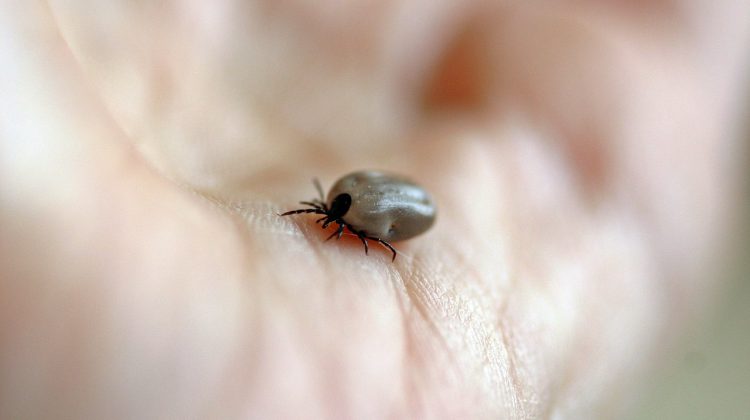Spring has arrived in the Kootenays, and so have ticks.
Ticks are small bugs that bite and feed on the blood of humans and animals, and can sometimes transmit disease. They’re typically found in tall grass and wooded areas.
There are more than 20 species of ticks in B.C., but only three species normally bite humans. However, Interior Health is still urging caution when outdoors.
“We are expecting to see increased tick encounters in the interior as people spend more time hiking, biking, walking, and doing other activities outdoors, and we just want to emphasize the importance of prevention,” said Interior Health resident medical health officer Dr. Jingxuan Zhao.
Types of ticks
Ticks carry toxins that can cause temporary muscle weakness and paralysis if they remain attached for long periods-especially in children or seniors-but the symptoms fade once the tick is removed from the skin.
Dr. Zhao says most tick bites do not cause illness; however, any bite from a tick should be cleaned to prevent infection.
“The best way to prevent tick illness is to stay on clear trails when you’re in tick habitat, which includes tall grass and wooded areas, cover up before you go outdoors, and do a full-body check on yourself, young children, and pets afterward to spot ticks early on before they bite.”
The signs of many tick-borne infections can be quite similar and include fever, headache, muscle pain, and rash.
Although ticks are common in the Interior Health region, Dr. Zhao says most are the Rocky Mountain wood tick, which do not carry the Lyme disease bacteria but, in rare cases, can carry Rocky Mountain spotted fever.
“Most tick bites do not cause illness, but in these cases, people can get sick from these kinds of tick bites. The likelihood of a bite leading to illness really depends on how early you find the tick on your body. It takes a while for a tick to bite and find a place to attach, so that’s why we emphasize wearing clothes that make it easy to spot ticks and tucking your pants into your socks so they can’t get to your skin.”
Lyme disease-carrying ticks are more common in the coastal areas of B.C. and are overall less common in our province compared to eastern and central Canada.
Although the bites are sometimes painful and slow to heal, IH says there is little danger of disease as long as they are removed promptly.
“The longer a tick is on your body, the more likely it is to bite you. If it has been hours or days following a tick bite, it’s still possible that a tick would be on your skin. If it has been a while since a tick has bitten and it has fallen off your skin, sometimes there can be a rash afterward where it bit you,” explained Dr. Zhao.
“In those situations, if you think you’ve been bitten by a tick and you develop a rash, fever, or other symptoms afterward, you should see a healthcare provider.”
Additionally, bites that result in the typical bullseye target skin rash of Lyme disease, or other symptoms after a tick bite, should be checked by a doctor.
How to protect yourself
IH recommends a variety of precautions to prevent illness that may be transmitted from tick bites.
“We really emphasize doing a careful check of your body after being outdoors, especially in tick habitat. Ticks like to be in the warmer places on your body and to bite in those areas. Check the underarms, the groin, and the scalp. It’s also easier to miss ticks in areas with a lot of hair.”
Additionally, it’s recommended to follow these precautions:
- Walk on cleared trails when in tall grass or wooded areas.
- Wear a hat, long sleeves, pants, and light-coloured clothing.
- Tuck pant legs into socks or boots.
- Apply insect repellent containing DEET on uncovered skin.
- Carefully check clothing and scalp (covered or not) when leaving an area where ticks may live.
- Regularly check household pets for ticks.
What to do if you get bitten
If you find a tick on yourself, a family member, or a pet, IH recommends wearing gloves when removing it and being careful not to crush the tick, as this could cause it to inject its stomach contents into your skin.
Use needle-nose tweezers to gently grasp the tick close to the skin, then, without squeezing it, pull the tick straight out. After removing the tick, clean the area with soap and water.
Most individuals with acute Lyme disease do not notice the biting tick that precedes the illness.
If the tick bite is deeper or you have any concerns, Dr. Zhao encourages visiting a healthcare provider for help.
You can also identify or test ticks yourself by submitting a photo to the eTick app, or they can be submitted for testing at the BCCDC’s public health lab by placing it in a container with a tight-fitting lid and bringing it to a physician.





